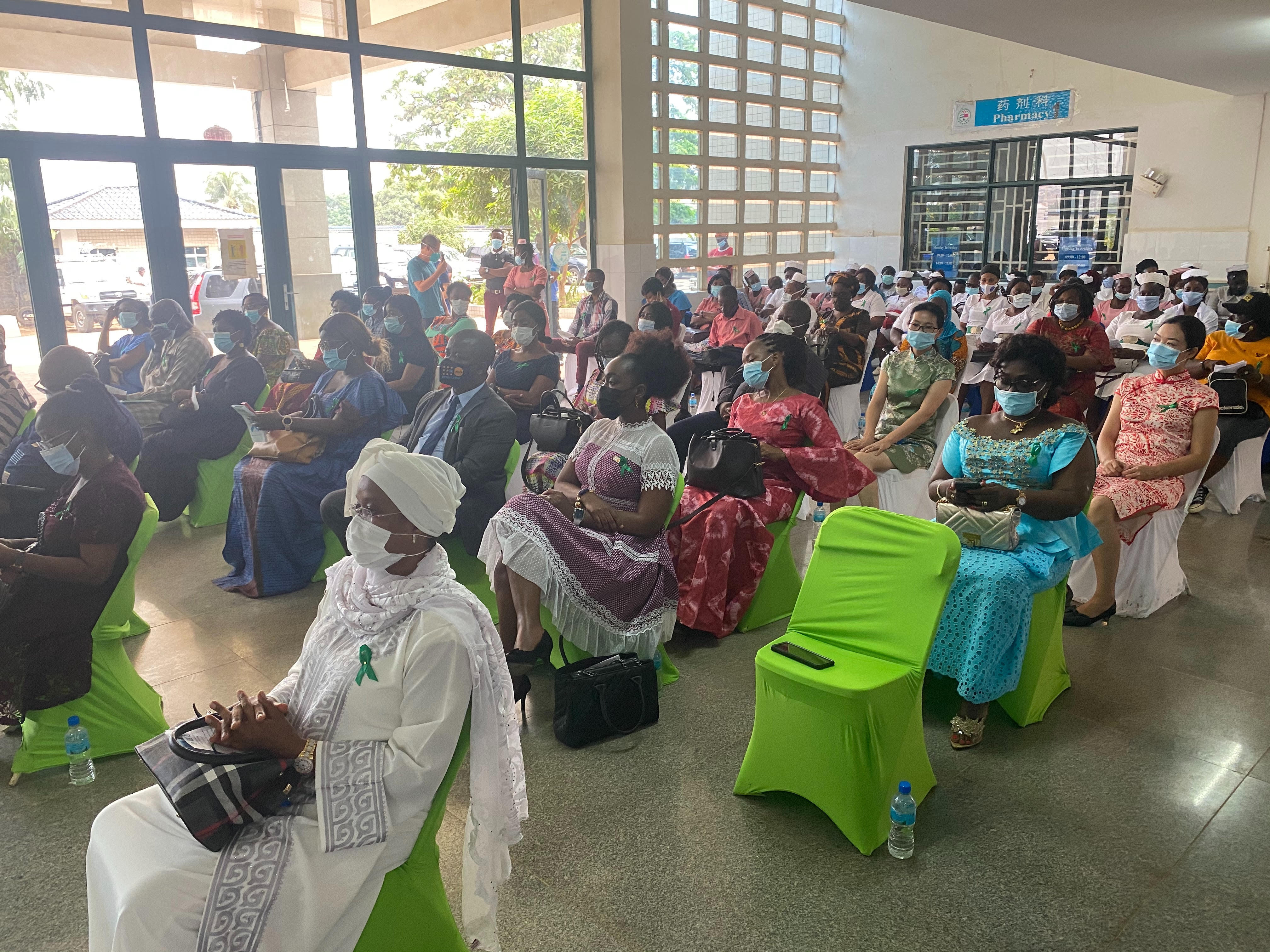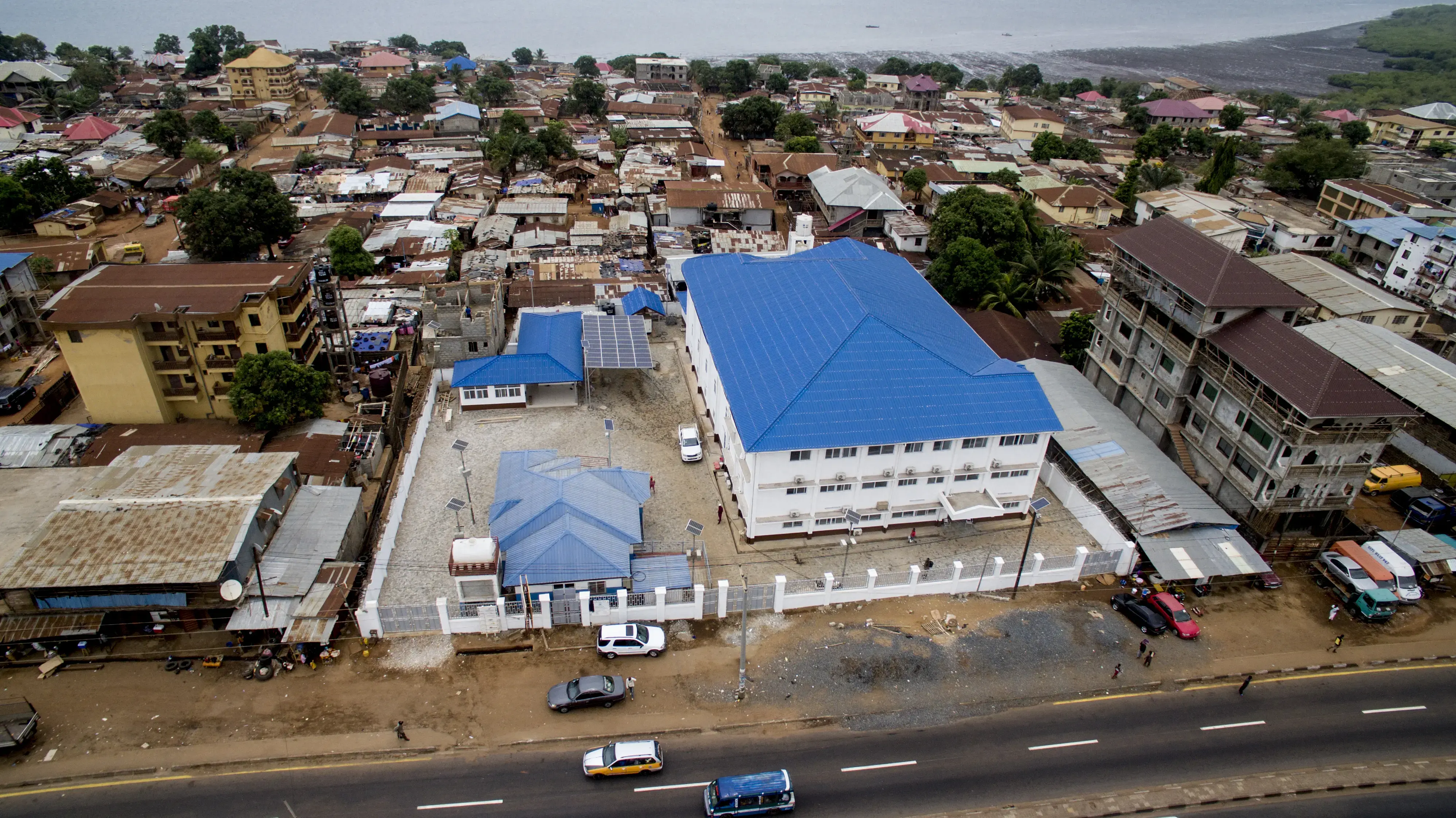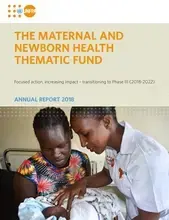FREETOWN, Sierra Leone, 9 March 2021 - The United Nations Population Fund on Monday, 8 March reaffirmed its commitment to continue its support to strengthening cervical cancer screening and treatment in the country.
This commitment was made by UNFPA’s Officer-In-Charge in a speech read by the UNFPA maternal health technical specialist, Dr. Stephen Mupeta at the official launch of a Public-Private Partnership Pilot Programme on Cervical Cancer Screening organised by University of Sierra Leone Teaching Hospitals Complex (USLTHC), Well Woman Clinic and Ramsy Medical Laboratories.
In 2020, UNFPA in collaboration with the Ministry of Health and Sanitation developed the China South-South Cooperation project aimed at improving women’s health and reaching vulnerable and marginalised women at high risk of maternal mortality and cervical cancer.
The project led to the development of three key national documents, namely, the first ever National Policy on Cervical Cancer, Strategic Plan, and Clinical Guidelines for the management of cervical cancer, and the refurbishment and equipping of Reproductive Health Centres in seven health facilities.
Speaking at the launch, Minister of Health and Sanitation, Dr. Austin Demby, said, there is a taboo around discussing cervical cancer. “One of the major issues is creating awareness so that we are able to talk about it [cervical cancer] openly. We should be able to screen as many women as possible throughout the country, especially with the availability of screening methods such as visual inspection using acetic acid to stain the cervix,” he added.
Dr. Demby stated that, “There is also the vaccine against Human Papillomavirus (HPV) which causes cervical cancer. If all young girls are vaccinated, cervical cancer will be history. Let us have an aggressive programme that looks at vaccination, screening and treatment for cervical cancer. We need a comprehensive national strategy, not only aimed at reducing but eliminating cervical cancer,” he urged.
In reaffirming the Fund’s support to the cervical cancer programme, UNFPA’s Dr. Mupeta said, “Cervical cancer remains a major public health problem ranking as the second most common cancer among women in Sierra Leone.” He added, “Cervical cancer is preventable if detected early and treatment is provided in a timely manner. Universal access to screening and treatment of pre-cancerous lesions of the cervix is a highly effective intervention that has led to a 70 per cent reduction in mortality caused by cervical cancer in developed countries.”
However, screening and early treatment programmes have been difficult to implement in low-resource nations like Sierra Leone due to the unavailability or non-existence of high quality cervical cancer prevention and control services; lack of awareness about cervical cancer; lack of effective referral systems; and the lack of appropriate public health policies and competing priorities among others.
UNFPA continues to support the Government of Sierra Leone in the provision of quality maternal and newborn health services including Emergency Obstetric and Newborn Care, family planning services for women and girls, and other sexual and reproductive health services.
###
About the United Nations Population
UNFPA is the United Nations sexual and reproductive health agency. Our mission is to deliver a world where every pregnancy is wanted, every childbirth is safe and every young person's potential is fulfilled.
For more information, please contact:
Angelique Reid, UNFPA Sierra Leone, Communications Specialist
Email: areid@unfpa.org
John Baimba Sesay, UNFPA Sierra Leone, Web and Media Analyst
Email: jsesay@unfpa.org Tel: +232 30953193/ +23279369395




